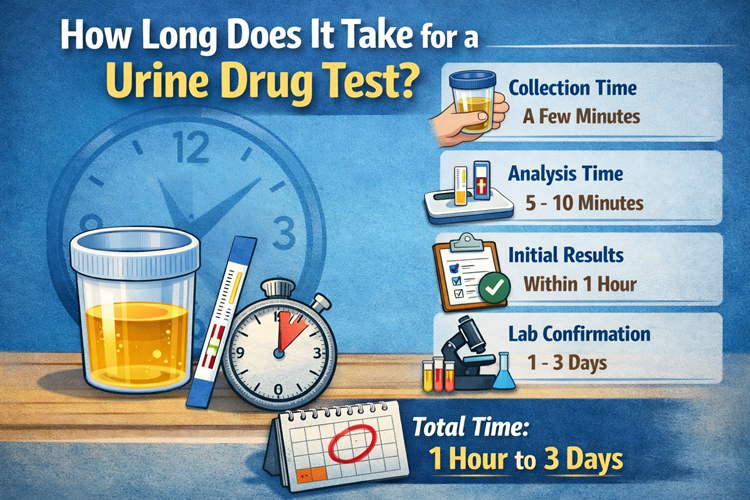Overview
Narcissistic Personality Disorder (NPD) is not merely a self-absorbed behavioral issue, it is a severe mental illness that affects the manner of perception of the individual and his/her relationship with others. Individuals with NPD tend to exhibit a sense of exaggerated self-worth, the constant desire to be admired, and the absence of empathy. But, behind this artificially created image, there is the sense of insecurity and low self-worth.
In Solutions Healthcare, we know that it can be difficult to live with or be a caregiver to a person with NPD. We have evidenced based and compassionate treatments that are aimed at restoring.
What is Narcissistic Personality Disorder?
The Narcissistic Personality Disorder (NPD) is a personality disorder that is defined by a persistent tendency of showcasing grandiosity, too much demand to be adored, and being unable to empathize with other people. The patients of NPD tend to have a false self concept and an exaggerated view of their skills or accomplishments.
Although they may look sure of themselves, narcissists possess a weak self-esteem, which relies on the validation of others. They can respond by being angry, ashamed, contemptuous when they are not getting such admiration.
To realize it is a complex disorder, it is important to understand what is narcissistic personality disorder because it is not just vanity or arrogance but an in-depth psychological condition that has an influence on the way one thinks, feels and acts.
100% Confidential Support is Available 24/7
No matter what you’re going through, you’re not alone. Our dedicated team is here to provide a safe, judgment-free space where you can talk openly and honestly. Whether you need emotional support, resources, or just someone to listen.
We’re here for you—completely confidential and always respectful of your privacy. Call us today!
How Common is Narcissistic Personality Disorder?
According to research findings, NPD occurs in about 1 to 6 percent of the population. It is more usually found among men than women and the symptoms usually start showing up during adolescence or even early adulthood.
Although narcissistic personality disorder in moderation is normal in the society, pure narcissistic personality is uncommon. Nevertheless, it may significantly interfere with the relationships, professional performance, and mental health when untreated.
Contact Solutions Healthcare
Battling with Drug and Alcohol Addition? Remember, you are not alone and we are here to help you!
What Are the Symptoms of Narcissistic Personality Disorder?
The symptoms of the narcissistic personality disorder are different though they usually involve behavioral, emotional and interpersonal patterns that continue throughout the life. Common signs include:
- Artificial level of self-importance.
- Continuous requirement of recognition or approval.
- Perception of being special and superior to others.
- Relaxation in daydreaming about power, success or beauty.
- Using other people to benefit self.
- Failure to show compassion to the feelings or needs of others.
- Jealousy of others/ or feeling that others are jealous of them.
- Dismissive or arrogant conduct.
It is necessary to mention that those symptoms should be chronic and have a great deal of impairment in functioning in order to be considered as a disorder.
What Causes Narcissistic Personality Disorder?
Narcissistic personality disorder is not completely understood yet it is believed to be a combination of genetic, psychological and environmental factors.
1. Genetic Factors:
Aggression, sensitivity, and temperament are personality traits that are also inherited and add to the narcissistic tendencies.
2. Environmental Factors:
Childhood events/experiences Unrealistic parental expectations, excessive pampering or neglect may also lead to the onset of narcissism.
3. Neurobiological Factors:
The variation in the brain structure and functioning, particularly, in the parts connected with empathy and emotion regulation, can also contribute.
The combination of these factors influences the way an individual develops his self-image and acquires skills to interact with other people.
What are the Complications of Narcissistic Personality Disorder?
Unattended, narcissistic personality disorder will cause severe complications, such as:
- Problems of relationships and emotional abuse.
- Problems at work because of arrogance or bad team work.
- Depression or anxiety particularly when one encounters criticism or rejection.
- The coping mechanism of substance abuse.
- Social loneliness and emptiness.
These complications underscore the role of early identification of narcissism and the importance of treating it in the long term.
100% Confidential Support is Available 24/7
No matter what you’re going through, you’re not alone. Our dedicated team is here to provide a safe, judgment-free space where you can talk openly and honestly. Whether you need emotional support, resources, or just someone to listen.
We’re here for you—completely confidential and always respectful of your privacy. Call us today!
How is Narcissistic Personality Disorder Treated?
Treatments of narcissistic personality disorder are effective in ensuring that individuals are taught to have a better self-esteem, empathy, and interpersonal abilities. In Solutions healthcare we are accommodating it as a whole:
1. Psychotherapy (Talk Therapy)
It is the best therapy that can be used to treat narcissistic personality disorder.Cognitive behavioral therapy (CBT) and schema-focused therapy methods will help people:
- Be able to identify unhealthy thinking.
- Develop empathy for others
- Learn how to control emotion.
- Develop achievable self images.
2. Group Therapy
The interaction with the other people in a well organised environment will help clients practice the new behavior, gather feedback and understand how to be emotionally mindful.
3. Family Therapy
Since NPD may make family relationships stricter, family therapy assists the loved ones to learn the condition, set boundaries, and encourage healing communication.
4. Medication
Although NPD does not have a particular drug, antidepressants or other anti-anxiety drugs can be given to treat the comorbid conditions.
The healing process takes time and dedication, yet with the help and right direction, the person will become more aware of themselves and have better relationships.

Conclusion
The Narcissistic Personality Disorder is a complicated mental disorder that needs the professional knowledge and sympathetic care. Learning to identify the symptoms of the narcissistic personality disorder and the prompt assistance may contribute considerably to the quality of life conditions and interpersonal relations.
Empathy, understanding and structured support are the three key beliefs that we hold at Solutions Healthcare, as a healing is always started through these three elements. Our mental health professionals team is committed to assisting people to go through the recovery process with dignity and care.
Call us now at (386) 866-3600 to get to know more about our evidence-based treatment programs of narcissistic personality disorder and begin your process of emotional health balancing.
100% Confidential Support is Available 24/7
No matter what you’re going through, you’re not alone. Our dedicated team is here to provide a safe, judgment-free space where you can talk openly and honestly. Whether you need emotional support, resources, or just someone to listen.
We’re here for you—completely confidential and always respectful of your privacy. Call us today!
FAQs
1. What are the five main traits of a narcissist?
Grandiosity, lack of empathy, entitlement, admiration, and seeking of people to exploit them are the five major characteristics that tend to manifest in narcissists.
2. What’s the best way to deal with a narcissist?
Establish the limits, do not involve power-playing, and prioritize the preservation of your emotional well-being. It is also possible to use the advice of a mental health professional to get through the challenging interactions.
3. How to help a narcissist heal?
Promote treatment, be concerned but not judgmental and facilitate their progress without crossing healthy boundaries. A wound requires time to heal, and it must be treated professionally.
4. What is the root cause of narcissism?
Most of the time narcissism is rooted in the early childhood experiences of over-praise, neglect or emotional trauma, coupled with genetic factors that influence self-image and development of empathy.
5. What are the 4 D’s of narcissism?
The 4 Ds of narcissism include Dysfunction, Distress, Deviance and Danger- these indicate how narcissistic behaviors are not patterned as usual and they create distress to the self and other people.






















